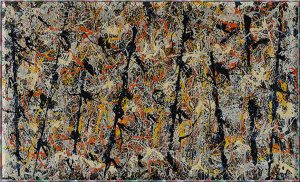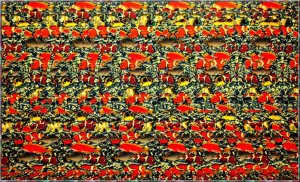Michael.
Senior Member
- Location
- UK (Surrey)


- Extraverted: ENTPs enjoy interacting with a wide variety of people. They are great conversationalists and love to engage other people in debates. (that's me)
- Intuitive: ENTPs are more focused on the future rather than on immediate details. They may start projects and never finish them because they are so focused on the big picture rather than the present needs. (story of my life. The book is terminally stalled.)
- Thinking: ENTPs are logical and objective. When making decisions, they place a greater weight on rational evidence instead of subjective, emotional information. (I can operate this way but I can respond subjectively and emotionally, relying on intuition)
- Perceiving: ENTPs tend to reserve judgment. Instead of making a decision or committing to a course of action, they would prefer to wait and see what happens. (Most of the time. Myers Briggs is about classification based on preferred ways of operating. It does not preclude other ways.)
Some common characteristics of the ENTP personality include:
Since they are identified as extraverts, it may come as no surprise that ENTPs have very good people skills. They are skilled communicators and enjoy interacting with a wide circle of family, friends and acquaintances. In conversations, other people often find them quick-witted.
- Innovative (love change, hate monotony)
- Very creative; full of ideas (not all of them good ones)
- Excellent conversationalist (could talk the leg off an iron pot, even as a toddler)
- Enjoys debating topics with other people (tick)
- Places a great deal of emphasis on knowledge (accurate knowledge at that)
- Dislike schedules and routines (almost a hippy to hubby's chagrin)
- Good at leading others (can step up to the plate when required)
- Does not like to be controlled (another problem for hubby)
- Very logical (good at maths, science, computers, Latin, lousy at art, music and dance)
ENTPs will often engage in debates simply because they enjoy having a good battle of the wits. Sometimes, their love of debates lead ENTPs to take on the role of the devil's advocate, which can sometimes lead to conflicts with others who feel like they are being intentionally combative and antagonistic. (recognise yourself a little?)
ENTPs are also known for be idea-oriented, which is why this personality type has been described as "the innovator," "the visionary," and "the explorer."
However, as perceivers, ENTPs are less interested in the here-and-now details than they are in generating ideas and theories. Because of this, they sometimes tend to come up with one idea after another without actually going forward with plans and actions to bring their creative notions into fruition.

INTP
Introvert(67%) iNtuitive(50%) Thinking(50%) Perceiving(22)%
- You have distinctive preference of Introversion over Extraversion (67%)
- You have moderate preference of Intuition over Sensing (50%)
- You have moderate preference of Thinking over Feeling (50%)
- You have slight preference of Perceiving over Judging (22%)
INTP (introverted, intuitive, thinking, perceiving) is one of the 16 personality types described by the Myers-Briggs Type Indicator (MBTI).
INTPs are often described as quiet and analytical. They enjoy spending time alone, thinking about how things work and coming up with solutions to problems. According to psychologist David Keirsey, creator of the Keirsey Temperament Sorter, approximately one to five percent of people have an INTP personality type.
INTP Characteristics
Some of the common characteristics exhibited by people with this personality type include:
- Introversion (I): INTPs prefer to socialize with a small group of close friends.
- Intuition (N): INTPs tend to think about the big picture, rather than focusing on every tiny detail.
- Thinking (T): INTPs are logical and base decisions on objective information rather than subjective feelings.
- Perceiving (P): INTPs like to keep their options open and feel limited by structure and planning.
As introverts, INTPs prefer spending time alone for the most part. Unlike extraverts who gain energy from interacting with a wide group of people, introverts must expend energy in social situations. After being around a lot of people, an INTP might feel like they need to spend some time alone to recharge and find balance. While they may be shy around people they do not know well, INTPs tend to be warm and friendly with their close group of family and friends.
- Quiet, reserved and thoughtful
- Enjoys theoretical thinking
- Tends to be flexible and tolerant
- Highly logical and objective
- Good at thinking "outside of the box"
INTPs can be very independent and place a great deal of emphasis on personal freedom and autonomy. In some cases, they can be aggravated by authority figures, particularly those that they feel are trying to suppress their ability to think and act for themselves. Because of this, INTPs typically do best in careers with they have a great deal of flexibility and independence.
Because INTPs enjoy solitude and deep thinking, they sometimes strike others as aloof and detached. At times, people with this personality type can get lost in their own thoughts and lose track of the outside world. They love ideas and place a high value on intelligence and knowledge.
In social situations, INTPs tend to be quite easy-going and tolerant. However, they can become unyielding when their beliefs or convictions are challenged. Their high emphasis on logic can make it difficult to not correct others in situations where other people present arguments that are not rational or logical. Because they rely on their own minds rather than others, they can also be very difficult to persuade.
[h=3]Famous People With INTP Personalities[/h]Based on analysis of their lives and works, some researchers including Keirsey have suggested that the following famous individuals exhibit INTP characteristics:
- Albert Einstein, scientist
- Charles Darwin, naturalist
- William James, psychologist and philosopher
- Dwight D. Eisenhower, U.S. President
- C. G. Jung, psychiatrist
- Socrates, philosopher
- Sir Isaac Newton, mathematician, physicist and astronomer
- J.K. Rowling, author
- Abraham Lincoln, U.S. President
Some famous fictional characters that exhibit INTP characteristics include:
- Sherlock Holmes
- Brian Griffin, Family Guy
- Data, Star Trek: The Next Generation
- Albus Dumbledore, Harry Potter
Some of the main characteristics of the INFP personality include:
- Loyal and devoted
- Sensitive to feelings
- Warm, caring and interested in other people
- Strong written communication skills
- Prefers to work alone
- Values close relationships
- Focuses on the "big picture" rather than the details
INFPs tend to be introverted, quiet and reserved. Being in social situations tends to drain their energy and they prefer interacting with a select group of close friends. While they like to be alone, this should not necessarily be confused with shyness. Instead, it simply means that INFPs gain energy from spending time alone. On the other hand, they have to expend energy in social situations.
INFPS typically rely on intuition and are more focused on the big picture rather than the nitty-gritty details. They can be quite meticulous about things they really care about or projects they are working on, but tend to ignore mundane or boring details.
INFPs place an emphasis on personal feelings and their decisions are more influenced by these concerns rather than by objective information. They also dislike conflict and try to avoid it. When conflicts or arguments do arise, they usually focus more on how the conflict makes them feel rather than the actual details of the argument. During arguments, they might seem overly emotional or even irrational. However, they can also be good mediators by helping the people involved in a conflict identify and express their feelings.When it comes to making decisions, INFPs like to keep their options open. They often delay making important decisions just in case something about the situation changes. When decisions are made, they are usually based on personal values rather than logic.
Because they are so reserved and private, it can be difficult for other people to get to know INFPs. They tend to be quite devoted to their circle of close friends and family and place a high importance on the feelings and emotions of their loved ones. Much of their energy is focused inward and characterized by intense feelings and strong values. They tend to be very loyal to the people they love and to beliefs and causes that are important to them.
INFPs tend to be very creative, artistic and spiritual. They are often skilled with language, but may prefer to express their thoughts and feelings through writing. Because they have strong ethics and values, they also become passionate about advocating or defending their beliefs. While they feel strongly about their own values, INFPs are also interested in learning more about others and are willing to listen and consider many sides of an issue.
INFPs also have strong interests in making the world a better place. In addition to wanting to gain a greater understanding of themselves and how they fit into the world, they are also interested in how they can best help others. People with this personality type spend a lot of time exploring their own purpose in life and thinking about how they can use their skills and talents to best serve humanity.
[h=3]Famous People with INFP Personalities[/h]Based on their lives, behaviors and works, Keirsey has suggested that the following famous individuals fit the characteristics of an INFP:
- Aldous Huxley, author
- Audrey Hepburn, actress
- Helen Keller, activist and author
- Isabel Myers Briggs, creator of the Myers-Briggs Type Inventory
- J. R. R. Tolkien, author
- Laura Ingalls Wilder, author
- Princess Diana, Princess of Wales
- Peter Jackson, filmmaker
- William Shakespeare, playwright
Some famous fictional characters with INFP personalities include:
- Calvin, Calvin and Hobbes
- Anne, Anne of Green Gables
- Fox Mulder, The X-Files
- Wesley Crusher, Star Trek: The Next Generation
Warrigal said:Here you are Phil - is this you by any chance ?

Blue poles [Number 11, 1952] 1952 enamel and aluminium paint with glass on canvas OT 367 212.1 (h) x 488.9 (w) cm signed and dated l.l., "Jackson Pollock 52";
(originally inscribed with a "3", subsequently painted over with a "2")

I see what you mean with the piece of art. I see it as a balance of tones colours 'weight,' shapes and lines, hardly notice the subject matter at first. I don't give a tuppeny about what the artist was thinking, or trying to convey. If it looks good I like it, if not I keep walkin'.
Ever been hypnotized by Blue Poles? I was. I don't know to this day what I 'see' in that painting but it mesemerizes me. It must have just been Pollack's lucky day because the rest of his stuff is sh*t. (to me) I've seen it a few times and it grabs me every time.
Last time was on a trip to Canberra with Mum in tow. She was bored with it in 5 seconds so I steered her to a comfy sit down spot and left her talking to another equally bored old dear and went back and sat and stared at that painting for ages.
She thought I'd been wandering looking at other paintings, so I didn't tell her different. There was a Monet exhibition on but we'd already done that, it was the reason for the trip, but Blue Poles was 'dessert' for me.
It's impossible to photograph, something is lost. The 3D effect of the painting can't be reproduced. The colours never come out right either, it's much more vibrant than this photo. 'Size matters' too, it's a huuuuge painting. 6ft x 16ft
It was bought by the Government for around 2mill $A back in the 70s. Arguably the only thing the Whitlam Govt ever got right. Its valued somewhere between 20 and 100 mill today.
If anyone knows why I like this thing so much could they explain it to me please?


I see what you mean with the piece of art. I see it as a balance of tones colours 'weight,' shapes and lines, hardly notice the subject matter at first. I don't give a tuppeny about what the artist was thinking, or trying to convey. If it looks good I like it, if not I keep walkin'.
Ever been hypnotized by Blue Poles?

It was bought by the Government for around 2mill $A back in the 70s. Arguably the only thing the Whitlam Govt ever got right. Its valued somewhere between 20 and 100 mill today.
I mean, as an advocate of the Big Mac Aesthetic I feel that the optical suggestions of the biomorphic forms contextualize the inherent overspecificity.



I could be bounded in a nutshell, and count myself a king of infinite space, were it not that I have bad dreams.
~ Hamlet
Hamlet, Act II, Scene 2
